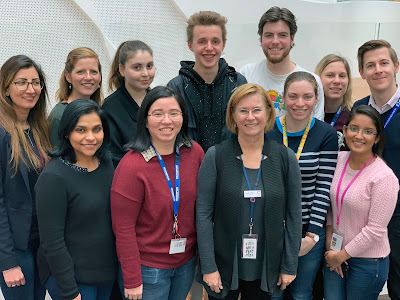An Atypical Career Path

My scientific career has been rather unconventional. After completion of a Masters Degree in Science at the University of Melbourne, Australia, I commenced full-time employment as a research assistant performing electron microscopy to investigate megakaryopoiesis at Australia’s largest comprehensive cancer centre, the Peter MacCallum, (often abbreviated to ‘Peter Mac’). Although it was always my personal goal to undertake a PhD, it was impractical for me as my priority was to start a family and be a mum. Additionally, back then the grant funding bodies in Australia did not take career disruptions into account. Notably, today the option to provide evidence of a career disruption is an integral component of most Australian grant applications, signifying that gender equity is being taken more seriously. After the birth of twin daughters in 1990, I transitioned to working part-time and continued to work part-time over the next 11 years whilst enjoying being a mum to the twins and two s...





